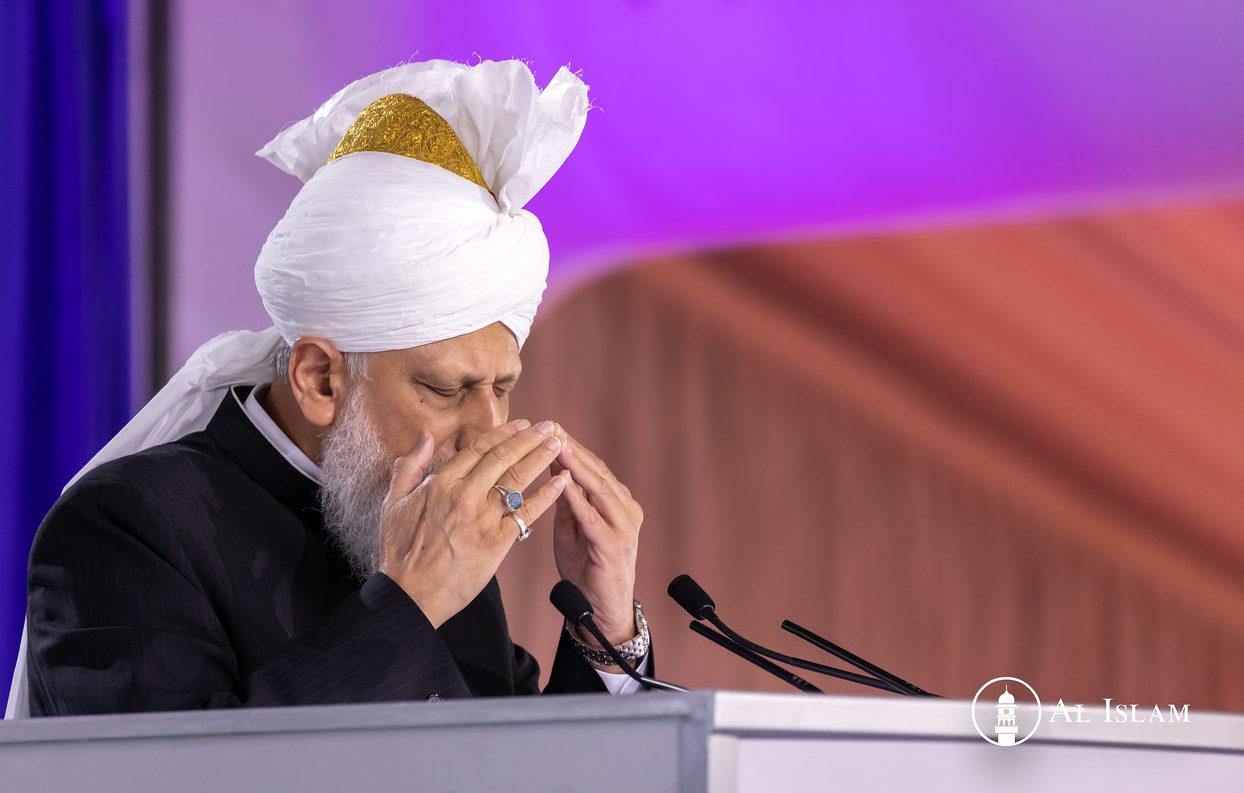How can a Merciful God demand the slaughter of a child? How can a pious father kill his son? How come this is not a sanguinary tradition? There are many myths related to Eid-ul-Adha, all but emanating from ignorance about Islamic ideologies.
HUSAM AHMED
AUGUST 1, 2020
Divinity is when any attribute is perfect to a degree which is beyond worldly parameters to be measured and outside human capability to be equalled; not even to a quadrillionth of its tiny fraction. Each and every attribute of God is perfect, though it is His mercy that encompasses all things.
Islam emphatically stresses on the mercy of God that no religion has ever been able to present such a perfect image of Him. In fact, the very essence of Islam is this aspect of mercy which is reflected in each and every one of its injunctions.
However, the modern era has initiated an unprecedented hatred against Islam giving way to extreme criticism of its doctrines and questioning the most fundamental of its principles. One of those doctrines which often becomes a target to merciless scrutiny is the celebration of Eid-ul-Adha and the history behind it.
Eid al-Adha and the myth of a bloodthirsty God
How can a Being Who demands the slaughter of a child be deemed Merciful? How can a father willing to kill his son be considered pious? How can the indoctrination of a child in a way that he becomes ready to lay his neck to be slaughtered be said to be moral? How come this is not a sanguinary tradition?
These questions may sound like emanating from a sincere concern for human values but are nothing other than deliberate distortions discharged by the flames of prejudice blazing in one’s heart. And if not prejudice, ignorance it may be. In any case, the bases of these questions are shattered by a mere superficial study of Islamic principles.
It is amazing to see how the so-called advocates of moral values conveniently twist the facts and consider it completely ethical to present a distorted picture of Islamic ideologies. The very concept of killing a child or any innocent person for that matter goes directly against the basic principles of Islam.
A dream and its fulfilment
Nowhere does the Holy Quran say that Allah commanded Prophet Ibrahimas to physically slaughter his child. The Quran speaks of a dream seen by Hazrat Ibrahimas in which he was slaughtering his son Ismailas.
A person with even the minimal knowledge of Islamic theology can understand that dreams, in most cases, are not interpreted in the way it is seen. Even in the worldly perspective in which dreams are understood as mere reflections of one’s thoughts, there is no denying the fact that dreams most often communicate in the language of symbols.
It is not these critics’ unjustly misrepresenting a dream as a command what is most disturbing, but their deliberate avoiding of any mention of its fulfilment which would sever any finger pointing at the integrity of the whole state of affairs.
The core of this whole account has been beautifully illustrated in the Holy Quran in these words:
Thou hast indeed fulfilled the dream.[1]
Any person whose intellect has not been infected by prejudice will find it no difficult to understand that it was not a physical sacrifice that God demanded from Ibrahimas. The words “you have fulfilled the dream” clearly shows that God’s stopping Ibrahimas from literally slaughtering his son was not because He changed His mind, but implies that the real object of the dream was never a physical slaughter. Such an action would be far from being the true way of attaining God’s pleasure.
The true meaning of sacrifice
The concept of sacrifice is fundamental to every religion. Not only religion but in the material world too, the idea of forgoing desired things is not totally alien. The only difference is that while the materialistic sacrifice is based on letting some things go with the intention of attaining more worldly gains, the spiritualistic sacrifice states it to be the responsibility of a person to put away his desires for the benefit of others.
Neither Islam nor any other religion which came from God has ever demanded physical sacrifice to appease God. On the contrary, the gist of Islamic teachings is that life being a gift from God should be protected at all costs and led in a way that it benefits others too.
It is this principle which Islam urges man to follow, which is all about acquiring human values. Rejecting these teachings will be tantamount to renouncing those values. The Holy Quran says:
Hast thou seen him who rejects religion? That is the one who drives away the orphan. And urges not the feeding of the poor.[2]
Hence, this is the spirit Islam wishes to create in man, for which the sacrifice of Hazrat Ibrahimas and Ismailas is commemorated, as these were the persons who attained the very objective of their life that is to fulfil the responsibilities towards God and His creation.
Those who are foolish of mind will turn away
The sacrifice of Hazrat Ibrahimas and Ismailas reminds us that our personal interests and inclinations should never come in the way of fulfilling the purpose of our creation, which is to seek the pleasure of God and serve humanity. This is such a noble cause that it would be naive to turn away from it. The Holy Quran says:
And who will turn away from the religion of Abraham but he who is foolish of mind?[3]
Hence, during this Eid, let us be determined to become Ibrahimas who sacrificed his life for the noblest cause, and let us create Ismails who would never let the storm of materialism put out the fire of spirituality from the hearts of people.
References:
[1] Holy Quran 37: 106
[2] Holy Quran 107: 2-4
[3] Holy Quran 2: 131












0 Comments